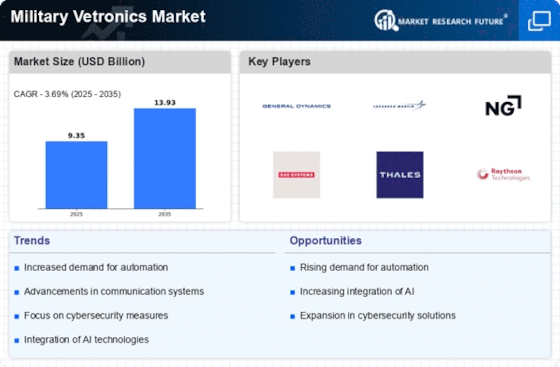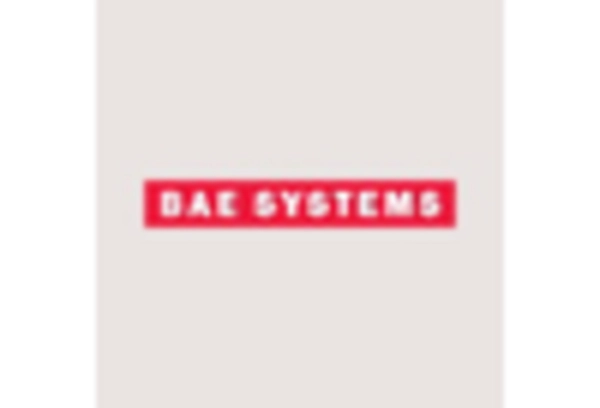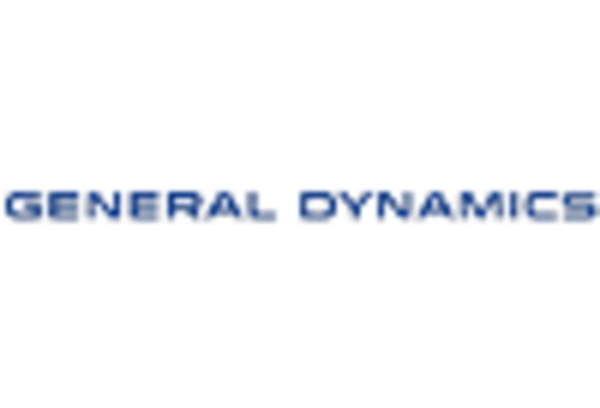Increased Defense Budgets
The Military Vetronics Market is experiencing a notable surge in defense budgets across various nations. Governments are prioritizing modernization and technological advancements in military capabilities, which directly influences the demand for vetronics systems. For instance, recent reports indicate that defense spending is projected to grow at a compound annual growth rate of approximately 3.5% over the next five years. This increase in funding allows for the procurement of advanced vetronics solutions, enhancing operational efficiency and combat readiness. As nations seek to bolster their military capabilities, the Military Vetronics Market stands to benefit significantly from these financial commitments, leading to a robust growth trajectory.
Focus on Autonomous Systems
The Military Vetronics Market is increasingly focusing on the development and integration of autonomous systems. These systems, which include unmanned vehicles and robotic platforms, are designed to enhance operational capabilities while reducing human risk. The market for autonomous military systems is expected to grow substantially, with projections indicating a potential market size of USD 15 billion by 2027. This shift towards automation is driven by the need for efficiency and effectiveness in combat scenarios. As nations invest in research and development of autonomous technologies, the Military Vetronics Market is likely to experience a paradigm shift, leading to innovative solutions that redefine traditional military operations.
Integration of Artificial Intelligence
The Military Vetronics Market is undergoing a significant transformation with the integration of artificial intelligence (AI) technologies. AI enhances the capabilities of vetronics systems by enabling advanced data analytics, predictive maintenance, and autonomous decision-making. This integration is expected to revolutionize military operations, providing commanders with actionable insights and improving overall mission effectiveness. The market for ai in military applications is projected to reach USD 7 billion by 2025, indicating a strong trend towards intelligent systems. As militaries worldwide adopt AI-driven solutions, the Military Vetronics Market is poised for substantial growth, reflecting the increasing reliance on technology in defense strategies.
Advancements in Communication Technologies
The Military Vetronics Market is witnessing transformative advancements in communication technologies, which are crucial for modern military operations. Enhanced communication systems enable real-time data sharing and improved coordination among military units, thereby increasing operational effectiveness. The integration of secure communication networks and satellite systems is becoming essential for vetronics applications. As a result, the market is projected to expand significantly, with estimates suggesting a growth rate of around 4% annually. This trend indicates that the Military Vetronics Market is adapting to the demands of modern warfare, where seamless communication is paramount for mission success.
Emerging Threats and Geopolitical Tensions
The Military Vetronics Market is significantly shaped by the emergence of new threats and ongoing geopolitical tensions. Nations are compelled to enhance their military capabilities in response to evolving security challenges, such as cyber warfare and asymmetric threats. This has led to an increased focus on advanced vetronics systems that can provide superior situational awareness and decision-making capabilities. The demand for integrated systems that can operate in complex environments is on the rise, with the market expected to reach a valuation of over USD 10 billion by 2026. Consequently, the Military Vetronics Market is likely to see accelerated growth as countries invest in innovative technologies to address these challenges.
















